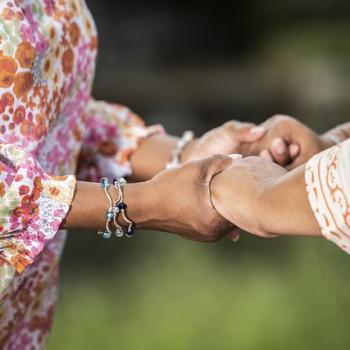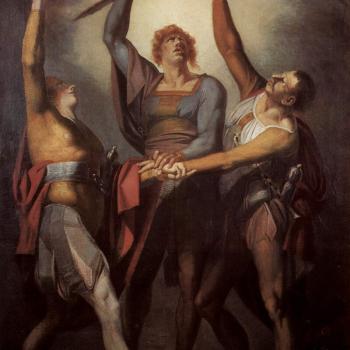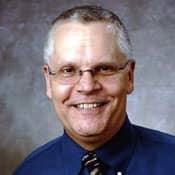Since Saturday, the blogosphere has been crackling with the sensational news that Fr. John Corapi—renowned speaker, televangelist, and a "star" at EWTN—has been placed on "administrative leave." Corapi's own website broke the story Friday night with the headline "A Call for Prayer," explaining that a female former employee had accused him of "everything from drug addiction to multiple sexual exploits"—all allegations that the priest says are false.
Well. The news quickly spread from my blog to others, darting through Twitter feeds and Facebook postings and chatrooms, ricocheting from computer screen to laptop like an Angry Bird breaking through bricks. I was stunned at the fevered reaction and at what some commenters had to say about it.
Fr. Corapi has had a profound impact on thousands of lives, and the Cult of Corapi is undeniably large, and loyal. Some readers said he was the only one proclaiming the Truth. Others sent in phone numbers, offering their legal services. For some, he is nothing less than John the Baptist, crying in the wilderness. To others, he is another Padre Pio, undergoing persecution for the sake of the Kingdom.
As the news continued to spread, one could be forgiven for thinking this was The Most Important Story in the Catholic Universe last weekend. But mid-day Monday, I found myself by a bank of elevators, waiting to go to lunch. Two priests soon joined me, also heading out to lunch. One of them, a monsignor, smiled and said hello. We waited for several long moments in silence, and then I decided to make chit-chat.
"So," I offered, clearing my throat, "did you hear the news about Fr. Corapi?"
He looked at me. The other priest looked at me. Somewhere, crickets chirped.
The monsignor furrowed his brow. "Who?"
I tried to explain. Both men, it turned out, had never heard of him.
We rode the elevator to the lobby in awkward silence. My mind flashed to another part of the Corapi statement, in which he bemoaned the process he must now undergo:
The resultant damage to the accused is immediate, irreparable, and serious, especially for someone like myself, since I am so well known.
Well, uh, maybe not.
But from my vantage point, as a deacon and member of the media, that encounter by the elevator was a valuable reminder of several salient things:
- Priests (and, to a lesser extent, deacons) are public people and, as such, figures of both fascination and fixation. In the case of Fr. Corapi, that fixation is amplified because most know him only through the television screen. And, it turns out, just because you're on TV, and some people recognize you, doesn't mean you're all that big a deal.
- As painful as it may be to admit, none of us is as important as we think we are. We are the protagonists in our own stories. But to others, we are just supporting players. Sometimes, we aren't even that.
- In terms of news management, Fr. Corapi and his superiors were wise to get ahead of the story and break it themselves, before other media outlets could. The cynic in me says it wasn't an accident that the story broke on a Friday afternoon—the White House does that all the time, with stories it hopes will be lost over the weekend—but I can't help but think it was also fortuitous that it broke just in time for the Feast of St. Joseph, whose litany for the day praises the foster father of Jesus as "Guardian of virgins, terror of demons."
No one at this juncture knows the whole truth of this sad story—except the accused, and his accuser. And while not everyone—even monsignors in New York City—knows just who Fr. Corapi may be, plenty of other people do. Judging from the passionate and sometimes strident comments at my blog, to some he is incapable of even the most venial sin. If (and it's a big if) anything damaging is uncovered, the impact could be devastating, for them. (See Maciel, Euteneuer, Ritter . . .)
For now, we can only embrace the final words of Fr. Corapi's statement, words that I think allude not only to the figures at the center of this storm, but also to those of us outside it, watching it unfold.
"Pray," Fr. Corapi said, "for all concerned."
Well, whether we realize it or not, what is happening to him now concerns all of us; a bruise to one part of the body is felt throughout.
And all of us should, indeed, be praying.
3/23/2011 4:00:00 AM





